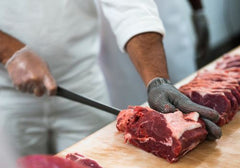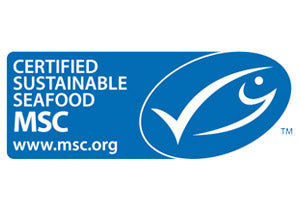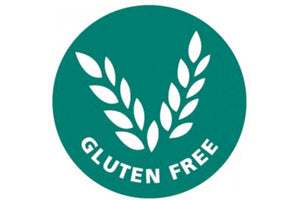
If you’ve ever stood at the butcher counter or scrolled through an online store wondering whether organic meat is really worth the higher price, you’re not alone.
Many Australians are confused by terms like organic, grass-fed, free-range, and biodynamic. They all sound good — but do they actually make a difference to your health, the environment, and even the taste on your plate?
At Rendina’s Butchery, we get this question every single week. And today, we’re giving you the honest, transparent answer you deserve.
The Short Answer: Is Organic Meat Worth It?
Yes — if you value health, animal welfare, sustainability, and flavour, organic meat is worth it.
But the truth is, it’s not for everyone. Some families prioritise price above all else. Others are seeking food they can trust, even if it costs more. By the end of this article, you’ll have the information you need to decide whether organic meat is the right choice for you.
What Does “Organic” Meat Actually Mean?
In Australia, certified organic meat comes from animals raised without:
-
Synthetic pesticides or fertilisers used on pastures
-
Hormone growth promotants
-
Routine antibiotics
-
Genetically modified feed
At Rendina’s, we go a step further. We specialise in biodynamic meat, a farming method that treats the farm as a living ecosystem. This approach builds soil health, boosts biodiversity, and produces meat that’s clean, ethical, and nutrient-rich.
So when you see “organic” or “biodynamic” on our shelves, it’s not just a label — it’s a guarantee of integrity.
Organic vs Regular Meat: What’s the Difference?
Here’s a quick comparison to make it clear:
| Factor | Organic Meat | Regular Meat |
|---|---|---|
| Farming methods | Chemical-free, biodynamic or organic pastures | Conventional, may use fertilisers & pesticides |
| Animal welfare | Higher standards, natural grazing | Varies, often intensive |
| Antibiotics & hormones | Not allowed | Often used preventatively |
| Nutritional profile | More omega-3s, higher antioxidants | Standard |
| Taste & quality | Rich, clean flavour | Can be bland or inconsistent |
| Price | Higher (reflects smaller scale farming) | Lower |

The Benefits of Choosing Organic Meat
-
Better for Your Health
-
Free from chemical residues, antibiotics, and hormones.
-
Higher in certain nutrients like omega-3 fatty acids.
-
-
Better for the Planet
-
Organic farming builds healthy soils and reduces chemical run-off.
-
Biodynamic methods restore biodiversity and protect waterways.
-
-
Better for the Animals
-
Organic standards require more space, natural diets, and humane treatment.
-
-
Better for Your Plate
-
Many of our customers say once they’ve tried organic beef, lamb, or chicken, they can’t go back. The tenderness and depth of flavour are unmatched.
-
Are There Any Drawbacks?
We’ll be honest — organic meat isn’t perfect for everyone.
-
Higher cost: Small-scale farming and higher welfare standards cost more to produce.
-
Limited supply: Because it’s seasonal and natural, some cuts may sell out.
-
Shorter shelf life: Without preservatives, organic meat is best eaten fresh or frozen quickly.
Who Is Organic Meat Best For?
Organic and biodynamic meat is especially valued by:
-
Families with young children who want clean, chemical-free food.
-
Health-conscious buyers who care about nutrition.
-
Environmentally aware consumers who want to reduce their impact.
-
Food lovers who want the best possible flavour and texture.
How to Choose the Right Butcher or Supplier
When buying organic meat, look for:
-
Certification and transparency — are they upfront about where the meat comes from?
-
Farm partnerships — do they work with trusted local farmers?
-
Specialist knowledge — can they explain what makes biodynamic and organic different?
At Rendina’s, we’ve specialised in clean, ethical meat since 2001. Every product in our store is carefully sourced, tasted, and trusted. When you shop with us, you know exactly what you’re feeding your family.
Frequently Asked Questions
What’s the difference between organic and grass-fed?
Grass-fed animals may still be raised with antibiotics or on chemically treated pastures. Organic certification requires stricter standards across the board, including animal welfare, feed quality, and chemical-free farming.
Does organic meat taste different?
Yes — many customers describe it as cleaner, more flavourful, and naturally tender compared to conventional meat.
Why is organic meat more expensive?
Organic farming is smaller scale and more labour-intensive. Animals are raised longer and in better conditions, which costs more to produce — you’re paying for quality, sustainability, and trust.
Is organic meat better for the environment?
Absolutely. By avoiding chemical fertilisers and pesticides, organic and biodynamic farming protects soil health, restores biodiversity, and reduces environmental impact.
The Bottom Line
So, is organic meat worth it?
If you’re looking for the cheapest option, probably not. But if you value health, sustainability, animal welfare, and taste, the answer is a resounding yes.
👉 Ready to taste the difference?
Explore our full range of organic and biodynamic meats, cheeses, and pantry essentials online, or visit us in-store at Rendina’s Butchery in Balwyn North.







